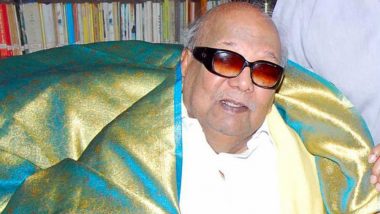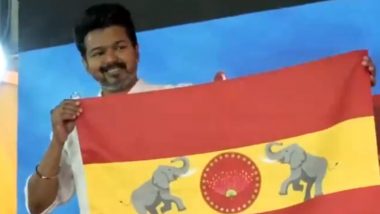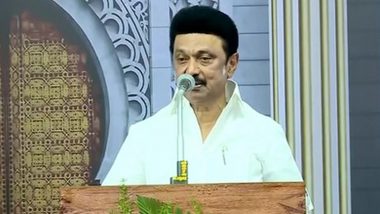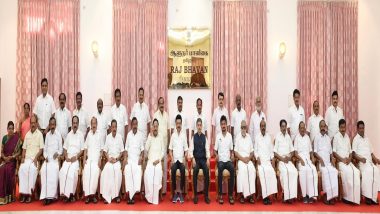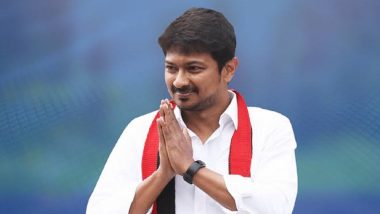Chennai, Aug 7: Dravida Munnetra Kazhagam (DMK) President M Karunanidhi breathed his last on Tuesday in a Chennai hospital after a short illness. He was 94. Though best known as the political rival to J Jayalalithaa, Muthuvel Karunanidhi was a man with several feathers in his cap. Karunanidhi's political career spanned eight decades. He contested 12 Assembly elections, losing none. A heavyweight of the Dravidian politics, he served the state five times as its Chief Minister. Born on 3 June 1924 in Nagapattinam district of erstwhile Madras Presidency, Karunanidhi was an admirer of activist Periyar, whose socialist ideology became the bedrock of his political ground. He dropped out of school but actively participated in the anti-Hindi agitations in 1938.
Starting off as a screenwriter in the Tamil film industry in 1944, he blended stories with his socialist and rationalist ideals of the Dravidian movement. The controversial film Parasakthi, released in 1952, is one such example. A runaway success for its Dravidian plot, the film raised several eyebrows for its anti-Brahminism tone. Kalaignar, as he was called, through the power of his pen, infused life into the character of Gunasekaran that introduced and immortalised Sivaji Ganesan in the Tamil film industry.
Karunanidhi's political career was equally a roller-coaster ride. Three years before India's Independence, Periyar formed the Dravidar Kazhagham movement. When this split up in 1949, Karunanidhi sided with Annadurai, and Dravida Munnetra Kazhagam (DMK) was born. There was no looking back since then for Karunanidhi, who won election after election, beginning 1957. While the DMK, headed by Karunanidhi, was a part of the Atal Bihari Vajpayee-led National Democratic Alliance government in 1999, the Tamil heavyweight drifted to the Congress party for 2004 Lok Sabha elections.
But the meteoric rise of the scriptwriter-turned-politician on the Indian political horizon was clouded too, albeit occasionally. He was indicted by the Sarkaria Commission for corruption in the Veeranam project, which was to deliver water to parched Chennai.
In 2001, while he was a minister in the Vajpayee government, Karunanidhi was arrested over a complaint related to the alleged losses of Rs. 12 crore in the construction of flyovers in Chennai. The high octave mid-night drama was blared on TV channels as images showed then 78-year-old DMK supremo being bundled out of his home by cops. Though the court later poked holes in the police's handling of the situation, it became the first incident in independent India when a federal cabinet minister was arrested.
Karunanidhi was often accused by his adversaries for being soft on the dreaded Liberation Tigers of Tamil Eelam (LTTE), a charge that he always denied. Despite the occasional odds, Karunanidhi was always able to sail through the crisis until his DMK was washed out in the 2014 general elections and faced a drubbing two years later in the Tamil Nadu Assembly elections.
When Jayalalithaa passed away in 2016, Karunanidhi, putting political rivalry aside, penned a condolence message for his arch rival. The 92-year-old wrote: "As far as the parties are concerned, there was difference in opinion. But nobody can deny that Jayalalithaa acted courageously for the welfare of her party."
The message reflected an ideology, a mindset that the party is above a person, the institution is above an individual, even as he faced criticism of favouritism and promoting his son M.K. Stalin in the DMK. Today, as thousands of his followers pour in to bid their leader goodbye, Karunanidhi, even in death, has shown what it means to be a larger-than-life politician, who, despite being confined to a wheelchair towards the end of his life, remained a cult-like figure- someone without whom a general or an Assembly election would be hard to imagine.













 Quickly
Quickly










